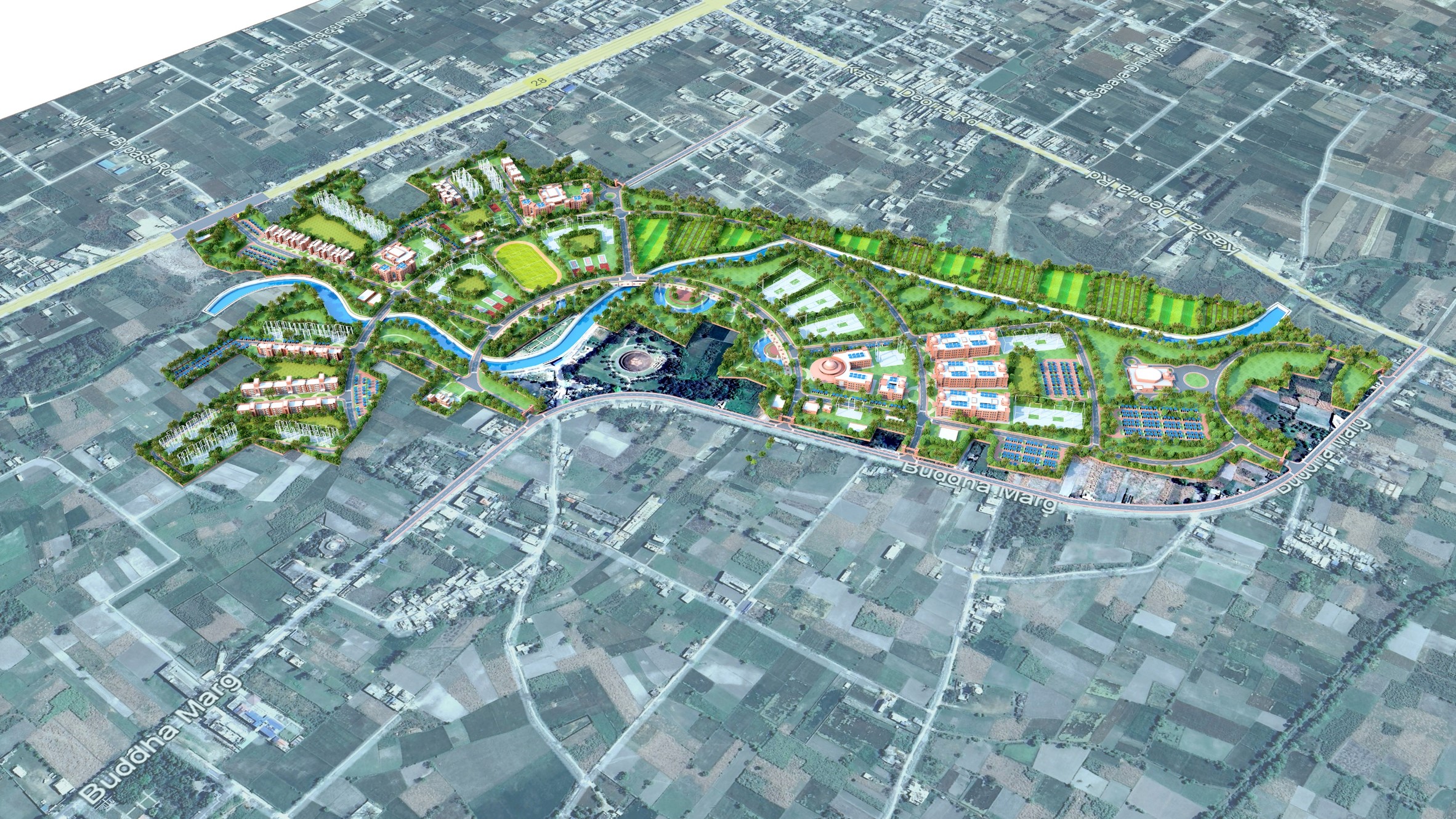
Mahatama Buddh Agricultural University
East Uttar Pradesh's first Agricultural University
Project Facts
- Area: 145 Acres
- Budget: INR 500 Crore
- Project year: 2025
- Client: Department of Agriculture, Govt. of UP
- Location: Kushinagar, Uttar Pradesh
Proposed Mahatma Buddha Agricultural University in Kushinagar, Uttar Pradesh, is a visionary project that aims to integrate the principles of Buddhism with modern agricultural education and research. Situated in the heart of the Buddhist circuit, adjacent to the revered Rambhar Stupa, this university holds immense significance not only for academic pursuits but also for promoting cultural and spiritual understanding.
University Vision and Mission:
The university's vision is to blend the teachings of Mahatma Buddha with cutting-edge agricultural practices to foster sustainable development, rural empowerment, and environmental conservation. Its mission is to provide holistic education, research, and outreach programs that align with Buddhist principles of compassion, harmony, and interconnectedness with nature.
Key Highlights and Objectives:
Buddhist Ethos: The university will integrate Buddhist ethics and values into its academic curriculum, promoting mindfulness, empathy, and social responsibility among students and faculty members.
Agricultural Innovation: It will serve as a hub for agricultural innovation, research, and technology transfer, focusing on sustainable farming methods, organic agriculture, water conservation, and biodiversity conservation.
Cultural Exchange: The university will facilitate cultural exchange programs, seminars, and workshops that highlight the historical and spiritual significance of Kushinagar and the Buddhist heritage of the region.
Tourism and Hospitality: Collaborations with local communities and stakeholders will be fostered to develop tourism and hospitality programs that cater to visitors interested in exploring the Buddhist circuit and heritage sites.
Community Engagement: The university will actively engage with farmers, rural communities, and agricultural stakeholders to address local challenges, promote entrepreneurship, and enhance agricultural productivity while preserving traditional farming practices.
International Collaboration: Partnerships with international universities, research institutions, and organizations focusing on Buddhism, agriculture, and sustainable development will be established to enrich academic exchange and global perspectives.
Infrastructure and Facilities: State-of-the-art infrastructure, research laboratories, farm facilities, botanical gardens, and educational centers will be developed to support teaching, research, and extension activities.
Skill Development: Besides academic programs, the university will offer skill development courses, vocational training, and extension services to empower youth, farmers, and rural communities with practical knowledge and skills.
Green Campus: Emphasis will be placed on creating a green and eco-friendly campus with renewable energy solutions, waste management practices, and conservation initiatives to promote environmental sustainability.
Participatory Governance: The university will adopt a participatory approach to governance, involving stakeholders, local communities, and experts in decision-making processes and policy formulation.